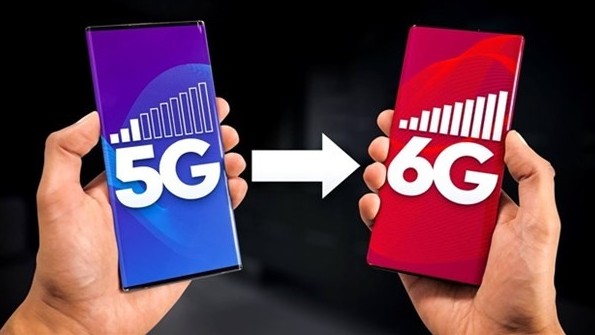
Getting 5G ready for Viet Nam’s digital transformation
Latest
 |
| Getting 5G ready for Viet Nam’s digital transformation, the talk show was held in VIR's studio in Ha Noi. (Photo: VIR ) |
By allowing new use cases like IoT, augmented reality, and better video and gaming, 5G is transforming people's professional and personal lives.
At VIR's online talk show Getting 5G Ready for Viet Nam’s Digital Transformation took place on April 4, the participants agreed that to accelerate Viet Nam’s digital transformation journey and prepare for the commercialisation of 5G technology, cooperation between different sectors to create an end-to-end 5G network infrastructure is of paramount importance.
According to Nguyen Hoa Cuong, vice president of the Central Institute of Economic Management (CIEM), about 70 countries around the world have commercialised 5G and on average it takes nearly four years for the number of 5G subscribers to reach one billion. Besides being a technological innovation on its own, 5G is the enabler for many other technologies.
However, implementing 5G presents several challenges. These include infrastructure readiness, the time taken to provide services, and cost optimisation.
Tran Tuan Anh, director of the Policy Division of the Vietnam Telecommunications Authority under the Ministry of Information and Communications (MIC) highlighted that Decision No.749/QD-TTg dated June 2020 on approving the national digital transformation programme has laid the groundwork for the country’s digital economy.
“We are striving to have the 5G frequency band for operators in place this year, and then to upgrade the network. On the commercial front, we currently have 300 gNodeB across the country, and nearly one million subscribers of 5G, spanning from healthcare, smart manufacturing, and education. We hope to finish the network allocation this year and provide 25 per cent of the country's population with 5G service,” he said.
From Anh’s perspective, global organisations such as Ericsson should ramp up their engagement with Viet Nam-based universities in order to bolster knowledge about 5G and push young and digital-savvy people to push forward with this extremely significant innovation.
Denis Brunetti, president of Ericsson Vietnam, Myanmar, Cambodia, and Laos, feels that Viet Nam is commercialising 5G at the right speed and it is likely to happen within the next year.
"In terms of employment, while 5G will act as an accelerator for automation, there will be more jobs created than displaced," Brunetti said. “5G will be a platform that helps create new industries, new companies, and new jobs through startup entrepreneurship. So that's really the double benefit of 5G.”
Nguyen Thanh Son, CEO of MVV Group, said Covid-19 has accelerated the digital transformation process. However, in terms of awareness, the private sector and enterprises in Viet Nam have not fully understood the technological revolution 5G would bring. Therefore, a smooth transition into a 5G-enabled economy would require businesses to have an open and growth mindset and a date refinery system, as well as continuous partnership between the government, private sector, and academia.
Son also pointed out the five pillars of 5G-enabled advancement, namely mobility, IoT, social media, cloud computing, and blockchain, which all need cutting-edge infrastructure to operate.
“Let’s take a look at the creator economy, which is the premise for so-called nano entrepreneurs. In the past, you would have needed to establish an organisation and recruit employees, but nowadays, you can see a lot of young individuals working as an entrepreneur on their own. Thanks to technology, they can connect with all of the available resources and earn a fortune in a couple of years. For instance, the Vietnamese video gaming sector, for example, is gaining traction. I believe that commercialising 5G technology will have significant advantages for this creator economy,” he elaborated.
On the other hand, a comprehensive regulatory framework that addresses privacy and data protection is very important, according to Tuan Anh of the MIC.
“One of the significant sectors which will bear the fruits of 5G and data privacy’s legal enforcement is the long-awaited mobile money services. All domestic telecom operators, from Viettel, MobiFone, to VNPT, are eager to jump on the bandwagon. The number of mobile subscribers is reaching an all-time high, thus the potential for mobile money is enormous. Mobile money users could execute a variety of small-valued financial transactions with the greatest level of security. Besides payment advantages, 5G-based applications are also finding their way into medical technology,” he emphasised.
Cuong of the CIEM also agreed, saying that 5G is empowering individuals and corporations to harness the power of previously unimagined possibilities.
"Increased bandwidth and communication speeds are revolutionising the way people live their lives, changing the way businesses operate, and boosting the quality of life for everyone," he noted.
















